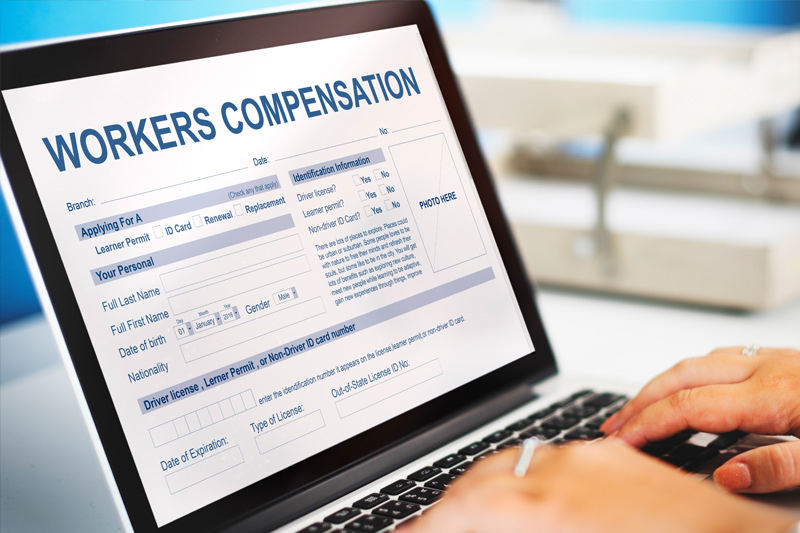Workers’ compensation typically covers an injury or illness that arises out of the course of employment. The coverage will of course be provided only based on a comprehensive medical chart review to understand the nature and extent of the injury or sickness, and how it impacts the employee’s life and ability to work. The employer or insurer may request the employee to undergo a physical exam to confirm the workplace injury/illness. Some employees may suffer mental illnesses caused by work factors such as stress, anxiety, depression or PTSD (post-traumatic stress disorder). These mental illnesses may be eligible for workers’ compensation coverage but the challenge lies in proving such illnesses.
What Is a Psychiatric Injury?
A psychiatric injury may be defined as a cognitive or emotional symptom that affects an individual’s life. It must be greater than the typical daily stress, and the other mental conditions suffered by the employee must have factually existed. Many U.S. states cover psychological injuries that affect an employee’s ability to do his or her job in certain situations. The affected employee could get the compensation granted more easily with efficient legal support.
A psychological or mental injury claim may fall under any of the following categories, as mycomplawyers.com points out:
- Physical – Mental injury: This signifies a mental injury that occurs as a result of a physical event such as a work-related injury that occurred when using a piece of equipment. The employee may feel anxious or afraid when using that equipment again, which in turn affects his or her performance.
- Mental – Mental injury: This type of injury develops consequent to some psychological trauma experienced at the workplace. Employees working in a bank may experience a bank robbery, or an explosion in their workplace which could trigger anxiety or depression and a constant feeling of fear. This could prevent the employee from performing his or her job appropriately.
- Mental – Physical injury: Mental distress can even lead to physical injuries. Take for example an occupation wherein employees are required to do their job correctly or face termination. The ensuing worry and stress could have a physical impact on the employee such as heart attacks, migraines, or ulcers.
Compensation for Work-related Psychiatric Injuries
According to shouselaw.com, in California, for a psychological injury to be considered a work injury, the actual events of employment must be the “predominant cause” of the injury. In fact, work must be greater than 50% of all causes of the injury. There is no such requirement for a physical injury claim. If the injury is caused by a violent act, the worker only needs to show that 35% – 40% of the psychiatric cause was from work. An employee filing a psychiatric injury claim must have been employed for at least six months with an employer. These 6 months needn’t be continuous. Also, a psychological injury must be caused by work conditions.
An important thing to remember is that the injured employee may be asked many personal questions, since the claim is for a mental injury and the insurer has to rule out any personal aspect that could have caused the injury. The insurer may want to know if the claimant has any relationship issues with family/friends, medical conditions, sex life, past abuse and so on. Such questions are allowed for a psychiatric injury claim.
Employees experiencing a psychiatric injury must seek immediate medical treatment. Medical records and medical records analysis must support a finding that the worker was in fact in need of immediate medical attention. For a psychiatric injury claim to be successful, the treating physician’s testimony or opinion should indicate that a workplace accident or workplace situation caused the injury. It is also important that the employee reports the psychological injury to his/her employer as soon as possible.
Getting a mental illness claim for workers’ compensation granted is challenging because you need to trace the illness to the job. A causal link should exist between the workplace and the psychiatric injury. In a claim quoting stress as the reason for the psychiatric injury, the claimant has to demonstrate that he or she suffered stress due to workplace factors, and not personal ones. If the case goes to court, the claimant will have to demonstrate objectively how the mental illness is work related. Also, he or she may need to prove that the stress of a particular job position was much more than the stress inherent in any other job.
If the claim is granted, psychiatric injuries qualify for the same kind of benefits as other work-associated injuries and illnesses. Compensation may include the following:
- Medical expenses, including the cost of transportation incurred if the claimant has to travel to receive treatment.
- Wage loss benefits, which provide two-thirds of the employee’s average weekly wage for as long as the employee is unable to work.
- If the employee’s treating doctor says he/she can work with medical restrictions and the employer provides a new job that doesn’t pay as much as the employee’s previous job, the employee may be eligible to receive two-thirds of the difference between the two positions.
- The employee may be eligible to receive vocational training for a new job.
As in any other workers’ compensation claim, medical records are very important evidence in a psychiatric injury claim. A workers’ compensation attorney, with the support of efficient medical review solutions would ensure that the medical records contain all details of the employee’s background, personal problems, development history, job performance reviews, and job satisfaction. For a prima facie mental health related claim, all relevant documents must be included in the physician’s report to validate the claim.
Disclaimer: The content in the above blog is sourced from reliable internet resources, and is meant for informative purposes only. It does not constitute professional legal opinion. For a professional legal opinion, contact a workers’ compensation attorney.




